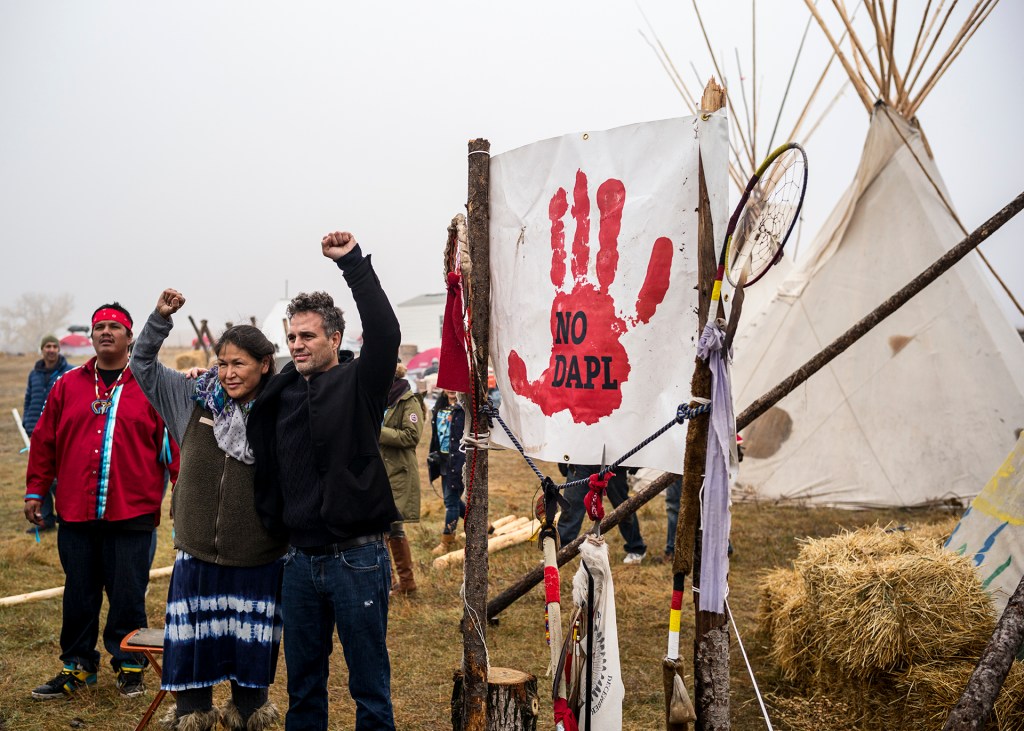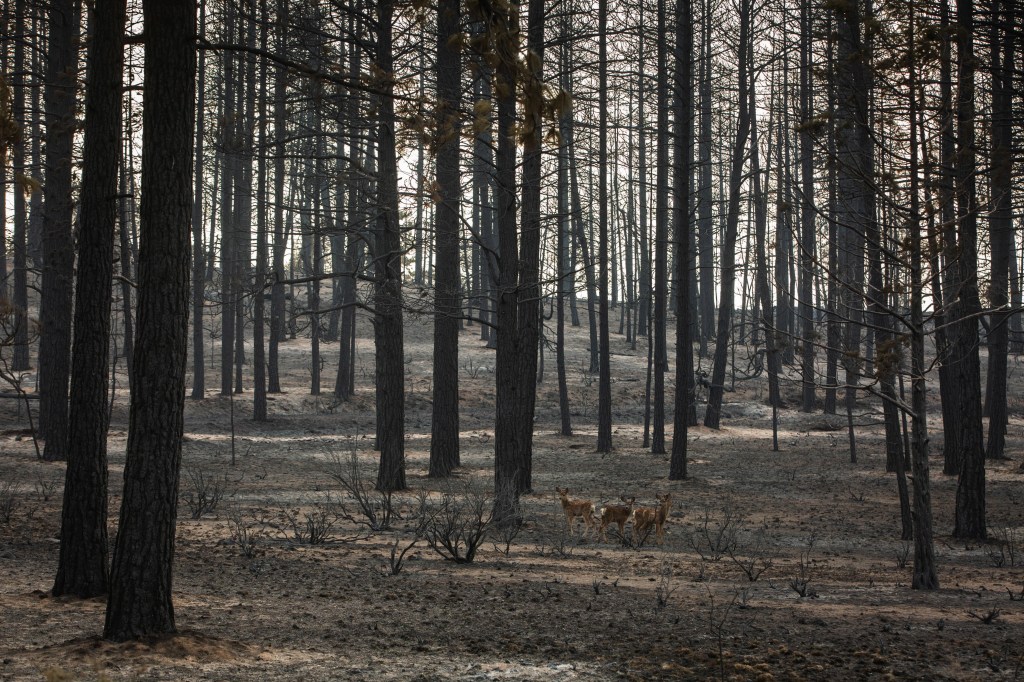In August, the National Committee for Responsive Philanthropy (NCRP), an organization that awards outstanding acts of charity, announced that the Solutions Project, a clean energy non-profit backed by actor Mark Ruffalo, would receive the “Get Up, Stand Up” Award for their rapid response funding to the anti-Dakota Access Pipeline (DAPL) activist movement. On Monday, the Solutions Project received the award at the NCRP Impact Award Ceremony with other philanthropic organizations.
The Solutions Project launched in 2013 and began its grassroots grantmaking program in January 2015. In the spring of 2016, the Solutions Project created the Fighter Fund, a rapid-response grant program to fund frontline leaders working towards making 100 percent clean energy a reality nationwide. One of its first Fighter Fund grants was to the Indigenous Environmental Network, supporting their convening of native-led grassroots organizations to defend their right to clean water and ownership of generational lands in the context of increasing pipeline fights.
Videos by VICE
According to Sarah Shanley Hope, Executive Director of the Solutions Project, the idea for the fund came from co-founder Mark Ruffalo after an Environmental Grantmakers Association session where activists impressed the urgency for philanthropies to support leaders on the frontline of making change.
“You’ve got to fund the fighters. They know the problem before anyone else does and they know the solution because they’re living there.”
In a video aired during the the NCRP award ceremony on Monday night, Ruffalo said, “As I was moving throughout the world trying to help these communities and give them a voice using my celebrity platform, I started to realize they were missing a lot of other support — support in content, support in leadership and support in funding.”
“You’ve got to fund the fighters,” Hope said in an interview with VICE Impact. “They know the problem before anyone else does and they know the solution because they’re living there.
So the Fighter Fund became another arm for the Solutions Project to move money, media and momentum behind environmental causes. The application process for the Fighter Fund is limited to groups of at least five people, who are usually referred to the Solutions Project via their network of movement leaders. The Solutions Project’s staff typically responds to these requests within a week and can issue sums between $7,500 and $15,000. Hope noted that these are extremely valuable dollars because they can turn on a dime whereas traditional philanthropies can sometimes take a year or longer to award grants.

In April of 2016, the Solutions Project was able to support the activist work of the Indigenous Environmental Network when one of the organization’s members, stand-up comedian Dallas Goldtooth, called on them to help convene Native leaders and Environmental Justice organizers to prepare for pipeline fights. The gathering brought leaders from Indigenous communities and environmental advocates together to strategize ways to end pipeline construction and develop a plan to divest from fossil fuel energy.
Check out more videos from VICE:
“Dallas wanted to bring together Native leaders because their territories are most at risk with the push for more pipelines,” Hope said. “Keystone is probably the most famous one prior to the Dakota Access pipeline, but there are others—dozens across Canada and the US, all of which run through Native lands.”
Similarly, the Solutions Project partnered with Wahleah Johns– Navajo leader and founder of Native Renewables, another Native-led environmental non-profit– to provide non-violent direct action training for new activists taught by the Indigenous People Power Project. Johns also successfully acquired a grant from Solutions Project for solar powered generators for protesters camping at the site of the pipeline.
In October, Mark Ruffalo and civil rights icon Reverend Jesse Jackson joined protesters on the ground, which spurred media attention. According to Hope, the biggest win by the Solutions Project-backed and Native-led NODAPL organizers was former-President Obama ultimately stopping the pipeline construction.
“Keystone is probably the most famous one prior to the Dakota Access pipeline, but there are others—dozens across Canada and the US, all of which run through Native lands.”
However, given the Trump administration’s advances for Keystone pipeline and DAPL, it seems like all the hard work done by organizers and philanthropists seems for nothing. But Indigenous-activists haven’t given up, and neither has the Solutions Project.
“There are already a lot of organizations and activists, including a lot of Native-led organizations and Native lawyers that are taking this through the courts and that is really important because there is significant evidence around breaking the laws here—laws around sovereignty and laws within the United States,” Hope said.
READ MORE: What Is Divestment and Why Should I Care About It?
By the end of 2017, the Solutions Project will have made $500,000 in small, rapid response grants to dozens of grassroots organizations through the Fighter Fund and have distributed more than $2 million in grants nationwide since starting this program.
Not everyone can be a philanthropist, but Hope has words of advice for people to looking make a difference in their own way. “Get involved where you are, connecting with and supporting and making investments, again donations, in local organizations and leadership is an actionable solutions-oriented way to take action.”
To make an impact on local clean energy initiatives where you live learn more about the Sierra Club’s Ready for 100 campaign, which encourages mayors to pledge their cities or towns to using 100 percent renewable energy. Here’s how you can you get your mayor to join the 150 cities and counting that have already committed to going 100.
UPDATE 9/25: This article has been updated to better reflect the accuracy of IEN’s role in the Solutions Project’s advocacy and philanthropic work.




